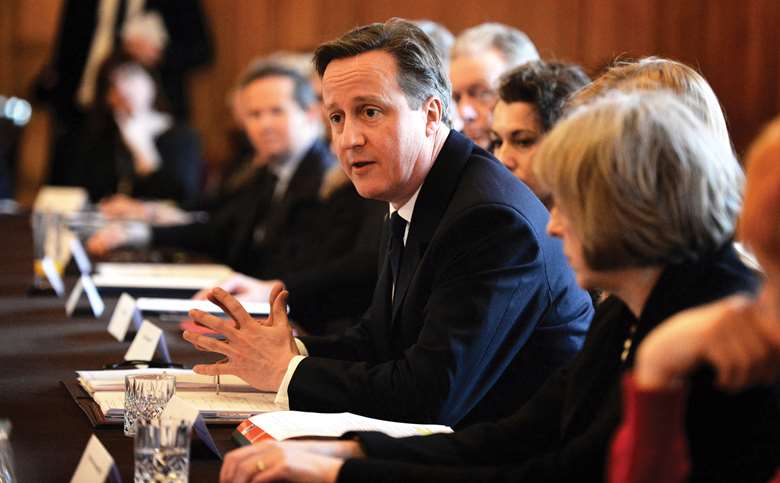CSE action plan: the key elements
Neil Puffett
Tuesday, March 17, 2015
After recent child sexual abuse revelations, the government has developed a national response strategy.

The government's action plan to tackle child sexual exploitation (CSE) launched at a No 10 summit this month is undoubtedly extensive - containing more than 50 strands.
CYP Now looks at the most relevant for professionals working with children and young people.
National initiatives
A National CSE Taskforce will be established to help local authorities when child sexual abuse is a particular concern.
Consisting of professionals in social work, law enforcement and health, it will be deployed anywhere in the country when needed. This could be as a result of concerns raised by an inspection or as a result of high levels of whistleblowing.
The taskforce will be linked to a new national Centre of Expertise that will work to identify and share high-quality evidence of what works in tackling child sexual abuse.
The centre will identify gaps in evidence and commission research to address them. It will also develop training materials for professionals and will work alongside the taskforce to promote best practice.
Meanwhile, the government wants to make it easier to report instances of inaction highlighted by recent probes of local authorities including Rotherham and Oxfordshire by setting up a national whistleblowing portal.
It is hoped that the new single point of contact will make it possible to spot patterns of failure across the country.
Where there are concerns, information could prompt a multi-agency area inspection by Ofsted, the Care Quality Commission, Her Majesty's Inspectorate of Constabulary and Her Majesty's Inspectorate of Probation.
The new multi-agency inspections will also assess whistleblowing arrangements in individual authorities.
In addition to this, all local safeguarding children boards (LSCBs) will be expected to conduct regular local assessments on the effectiveness of local responses to CSE.
Local checks
Local authorities have also been told to conduct a review of children's services assessment and decision-making tools at the request of Education Secretary Nicky Morgan.
On Morgan's behalf, chief social worker for children Isabelle Trowler wrote to directors of children's services (DCSs) calling on them to immediately review any assessment and decision-making tools in their authority designed to support professionals making decisions about risk.
She said councils must make sure they are both fit for purpose and are being used properly.
"Decision-making tools can be helpful, but they should only ever be used to assist in decision making," Trowler said in the letter.
There are also significant efforts to improve information sharing. The Department for Education, Department of Health, the Home Office, the Department for Communities and Local Government, and the Ministry of Justice have written to local authority chief executives, DCSs, police and crime commissioners, LSCBs, health and wellbeing boards, and GPs, calling on them to improve information sharing practices.
Actions local agencies are suggested to consider include co-location, joint risk assessments, a victim-focused approach, good leadership and clear governance, and frequent reviews of operations.
By the end of March, cross-government information sharing guidance will be published. Alongside this, about £1m has also been set aside for multi-agency working pilots in local authorities.
Actions for other agencies
Child sexual abuse will be given the status of a "national threat"
in the Strategic Policing Requirement in order to compel police forces to prioritise the issue. All new recruits and existing staff will receive specialist training relating to their position.
Measures will also be taken to train health service professionals and clinicians to spot the signs of CSE early and share information with others.
Routine enquiries made by staff in targeted services such as mental health, sexual health and substance misuse services will be expanded so that professionals include questions about child abuse.
Meanwhile, a resource pack for school nurses will be published, training materials on safeguarding children for NHS staff will be updated, online training for all NHS staff will be provided and an awareness raising film will be made.
The government has also set aside £250,000 for a Women's Empowerment Fund, which will make money available to voluntary and community groups that work with women in the community.
The idea behind this is that it will help to pay for innovative projects that help give women - especially those in harder to reach groups - the confidence to challenge sexual abuse when it occurs.
Support for survivors of CSE is also being boosted, with the government giving an additional £7m to organisations that support those who have experienced sexual abuse, both this year and in 2015/16.
This will include specialist services for all child victims of sexual abuse and services where there is a high prevalence of child sexual abuse.




